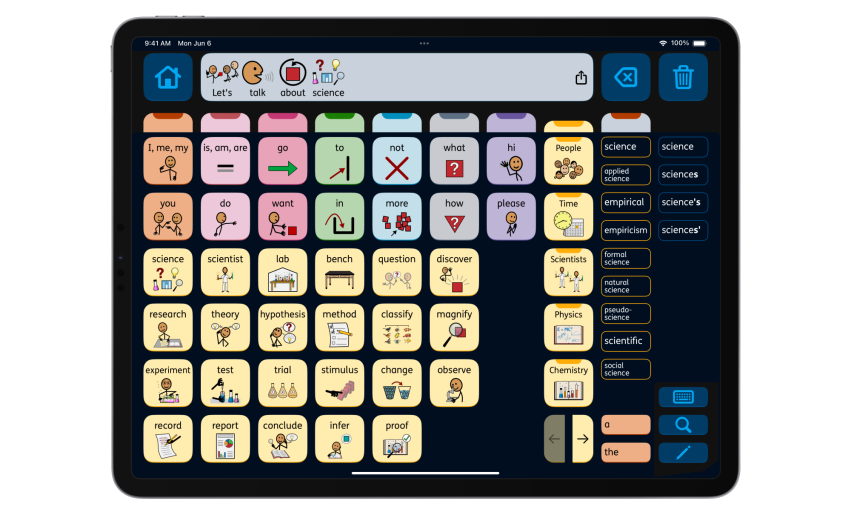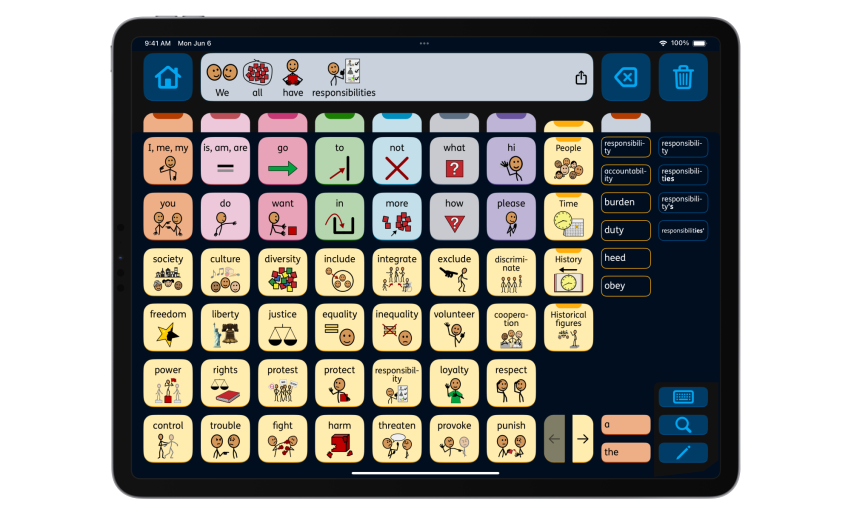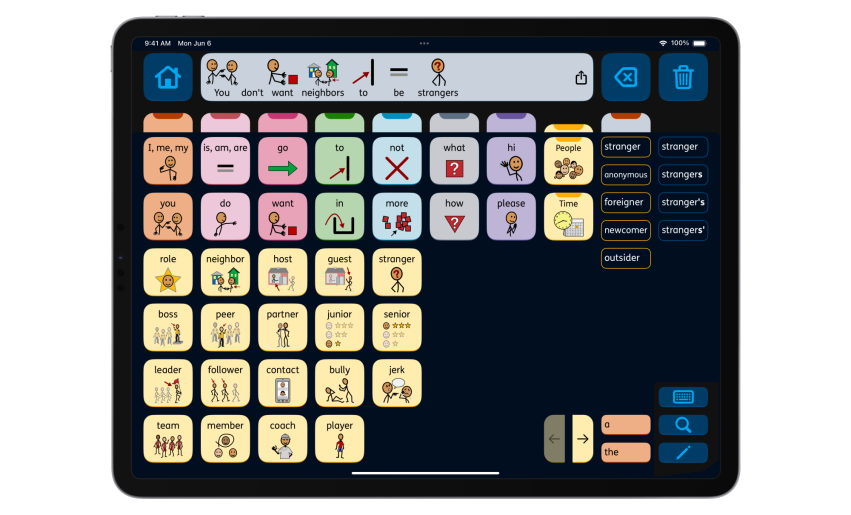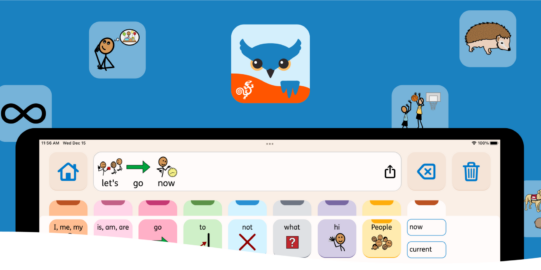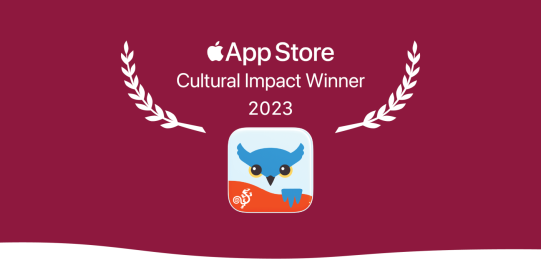Proloquo’s Crescendo Evolution™ vocabulary supports school-aged students by providing easy access to the essential words from the curriculum. These words are organized by school subjects so that teachers can easily find the words they need. The graphic symbols provide an important visual cue to the meaning of these essential academic concepts, which is helpful to all students.
Proloquo supports teachers
Proloquo is the first AAC app designed to support teaching students of all ages. Words that are common across all levels of education (from preschool to university) are found in the School folder. Early years teachers appreciate the visual supports of the graphic symbols as they teach everything from letters and shapes to body parts and weather. The symbols on the Feelings page help all students learn to identify and express their emotions. The unique Related Words feature supports writing, as students consider synonyms and explore new vocabulary. Were they, or their character, happy and excited, or were they delighted and exhilarated?
Proloquo’s fringe vocabulary is consistent with how we teach school curriculum, such as sorting foods into common food groups like Proteins and Vegetables. As students progress through the curriculum, they have visuals to help them understand concepts like calories and nutrition.
Teaching academic subjects
Science
Science is all about learning to question, discover, test a hypothesis, and form a conclusion. These general science terms are right on the first page of the Science folder.
Subfolders provide visuals to help students understand common concepts, from sink and float, attract vs repel, to velocity and friction. The Chemistry and Physics subfolders provide advanced vocabulary to learn everything from electrical circuits to mass and density.

